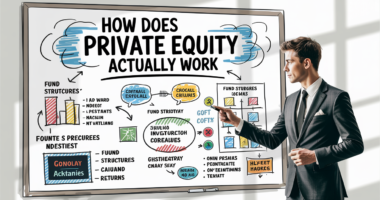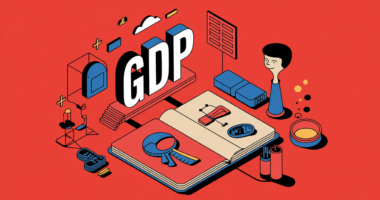When I was in college, money felt like a mystery. But after making some embarrassing mistakes, I discovered lessons that changed everything. Now I have a plan for managing money and reaching goals. In fact, a survey found that 54% of teens feel unprepared to manage their finances. Also, many adults struggle: over half have no budget at all. So I’m sharing 10 simple personal finance lessons I learned. Each is practical and friendly, and can help students, young people, or families around the world.
1. Create a Realistic Budget
To begin with, I learned that budgeting is like having a roadmap for your money. I started listing my income and all my expenses in a simple spreadsheet or app. As a result, I could see exactly where my money was going. For example, I knew how much covered rent or food and how much I could spend on fun. Because of that, I avoided overspending and stress. Even if you’re on a small student allowance or supporting a family, making a clear plan helps. In fact, having a plan is easier than it sounds and feels very freeing.
2. Save and Invest Early
First of all, I realized that saving early is very powerful. For example, I began saving just a few dollars each week, and surprisingly that money started growing thanks to interest. Also, I learned about compound interest, which means your money can earn more money over time. As a result, saving a little bit now has led to big rewards later. In short, I let time work its magic by saving in my 20s, and today I have more money than I expected. Globally, experts say early saving is a “superpower” anyone can use.
3. Build an Emergency Fund
Furthermore, I learned that life brings unexpected surprises. Once my laptop broke, I almost panicked because I had to replace it. As a result, I decided to keep a small “rainy-day” fund. Today I have enough saved to cover at least three months of expenses. Surprisingly, fewer than half of people have this buffer, so I feel lucky. Because I built this emergency fund, I can handle a sudden expense without fear. Consequently, I sleep better at night and don’t depend on high-interest loans when life throws a curveball.
4. Avoid High-Interest Debt
Next, I learned the hard way that debt can spiral out of control. For instance, I saw my credit card balance grow each month because of high interest. So I made a rule to pay off my credit cards in full every month. As a result, I no longer pay those heavy interest fees. Also, I tackled any student loan or personal loan by paying the smallest debt first to build confidence. Consequently, debt that once felt overwhelming became manageable. In fact, keeping debt low lets me use my money for goals instead of just paying bills.
5. Live Below Your Means
At the same time, I realized it’s wise to spend less than I earn. So I stopped trying to match friends’ fancy lifestyles and found cheaper fun. For example, instead of pricey nights out, I cooked at home or watched movies. As a result, I saved more money without feeling deprived. Moreover, many people practice frugal living around the world to build wealth. In fact, this choice freed up cash for things I value, like travel or education. By living simply, I felt more in control of my future.
6. Use Helpful Apps and Tools
Since I’m tech-savvy, I began using apps to simplify budgeting. For example, NerdWallet mentions that YNAB (“You Need a Budget”) uses a “zero-based budgeting” approach, where every dollar is planned ahead. I tried it and planned each paycheck in advance. Additionally, I used Goodbudget, an app that works like a digital envelope system for spending categoriesnerdwallet.com. Also, my bank’s app sends me alerts before bills are due. In short, these tools keep me organized and avoid surprises.
7. Track Every Expense
Moving on, I started writing down every purchase. For example, I noted even a cup of coffee or an Uber ride. Although tedious at first, this practice was eye-opening. When I saw small buys totaling a lot, I cut some out. Today I use a simple expense tracker app or even a notebook. As a result, I’ve found extra money to save each month. In fact, tracking expenses made me aware of my habits and led to better choices. So I keep reviewing my spending to stay on track.
8. Set Clear Goals
Moreover, I set specific money goals to stay motivated. For instance, I saved for a new laptop by deciding how much to put aside each week. That way, I watched my savings grow toward that target. Also, I discussed our money goals with my partner, which keeps us motivated together. Many families even have a “budget meeting” where each person shares goals and progress. As a result, our goals (like a vacation or a future home) feel real and achievable. In short, clear goals give purpose to every dollar.
9. Automate Savings and Bills
Additionally, I automated as much as possible. For example, I set up automatic transfers so a part of my paycheck goes straight to savings on payday. So I “pay myself first” without even thinking about it. Similarly, I automated bill payments to avoid late fees. Because these steps are automatic, I rarely forget them. As a result, my savings grow steadily and bills are always paid on time. In essence, automation turns good habits into a routine and reduces stress.
10. Keep Learning and Stay Grateful
Finally, I remind myself to keep learning about money. I read helpful blogs, watch finance videos, and even listen to podcasts about personal finance. Also, I share what I know with friends and family. Amazingly, teaching others reinforces my own habits. Moreover, I practice gratitude for what I have. Giving a bit to charity or helping a friend budget reminds me that money is a tool, not just a goal. In conclusion, managing money is a journey, so I stay curious and positive every day.










